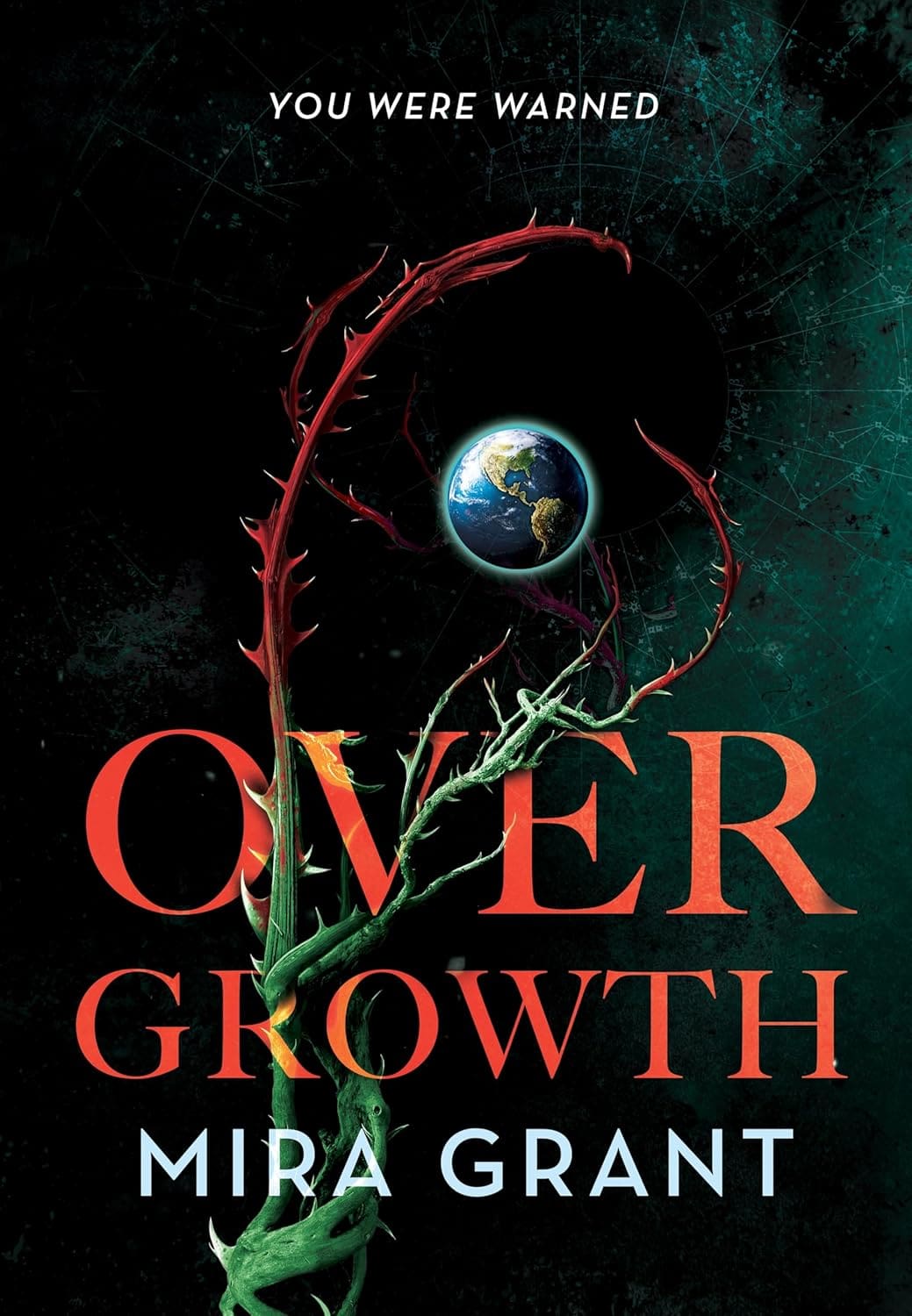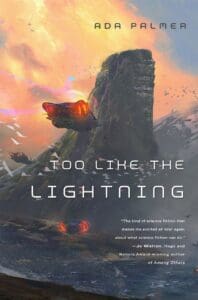
Synopsis
Day of the Triffids meets Gretchen Felker-Martin’s Cuckoo.
This is just a story. It can’t hurt you anymore.
Since she was three years old, Anastasia Miller has been telling anyone who would listen that she’s an alien disguised as a human being, and that the armada that left her on Earth is coming for her. Since she was three years old, no one has believed her.
Now, with an alien signal from the stars being broadcast around the world, humanity is finally starting to realize that it’s already been warned, and it may be too late. The invasion is coming, Stasia’s biological family is on the way to bring her home, and very few family reunions are willing to cross the gulf of space for just one misplaced child.
What happens when you know what’s coming, and just refuse to listen?
Review
When Anastasia Miller was three years old, she wandered alone into the woods. There, she encountered a strange plant, and what returned home to the Miller house days later was no longer Anastasia Miller. For the next thirty-some years, Stasia has been eager to inform everybody she met that she is, in fact, the vanguard of an alien race intent on invading Earth. For thirty-some years, she has been met with scorn and ridicule. And then, an astronomer captures an alien signal from outer space — and it’s getting closer.
When Tor announced their publication of Mira Grant’s publication of Overgrowth as part of their Nightfire line back in October 2024, I was immediately excited. An end of the world, alien invasion book featuring a plant-based species, and promising full-on body horror apocalypse, from the author of the Newsflesh series, Rolling in the Deep, and Into the Drowning Deep — how could I not be?
Unfortunately, that enthusiasm was short-lived. I found Overgrowth overly long, overly tepid, and overly dull, and unable to satisfyingly deliver on any of its biggest promises.
By the time we become properly acquainted with Stasia — we’re made aware of her alien status right from the beginning during the abduction and murder of three-year-old Anastasia in the book’s opening moments — she’s a 35-year-old neurotic whose compulsions to inform literally everybody she encounters that she’s an alien plant person has made it difficult for her to blend in. Her coworkers routinely taunt and bully her. Her boyfriend and roommates put up with her weirdness because they ultimately consider her harmless.
Of course, there are reasons for Stasia’s compulsion to let everybody know she’s not human and that an alien armada is on their way, but Grant takes far too long getting to the core of these explanations. In the meantime, it feels like a lot of forced silliness, as if we’ve been plunked into an episode of The New Girl by way of Invasion of the Body Snatchers. And, of course, the grand reveal behind these compulsions proves equally hokey. I couldn’t help but wonder, repeatedly, how this ostensibly crazy lady with zero ability to adapt to social cues had managed to get so far in life without being institutionalized multiple times. Personally, I’d give a pretty wide berth to anybody insisting they were an alien plant from outer space and that doomsday is coming, but maybe that’s just me (Granted, I’d be wrong about it in the context of Grant’s narrative, but at least it’d be more realistic).
Stasia’s much ballyhooed invasion, and ostensibly the book’s raison d’être, doesn’t even occur until two-thirds of the way through and then proceeds largely off-page while Stasia and her Scooby gang are off doing other, far less interesting things. Yes, yes, yes, we could do much hand-waving about how, technically, the invasion started decades ago with Stasia’s emergence as a pod person and the shower of alien seed pods that found their way to Earth, but I’m talking about the good stuff. Alien ships and technology, the wholesale slaughter of innocents, the Big Budget Hollywood sequences of large-scale disaster and entire cities being wiped off the map, the mobilization of resistance forces — you know, some real big Independence Day kind of shit. I wanted to see the apocalypse part of Grant’s apocalyptic plant-based alien invasion scenario and intense sequences of body horror that would make my skin crawl. Instead, all I got was a big ol’ nothingburger. The apocalypse is virtually swept under the rug and the body horror is so lame it’s essentially little more than skin flaking off after a bad sunburn.
To her credit, Grant’s focus on characters allows Overgrowth to function on an allegorical level, and it does succeed there, to a certain extent, even as it fails to satisfy on any level as a horrifying apocalypse. Between Stasia and her friends, Grant provides plenty of representation for diverse, neurodivergent, gay, and trans segments of society that are oftentimes missing in Big Publishing’s mainstream horror efforts. Much of Stasia’s forays into American society parallels coming out of the closet and having to face discrimination, derision, and persecution. That Overgrowth functions as well as it does allegorically, when viewed solely through the microcosm of Stasia’s experiences, feels welcomingly rebellious given the current strife these groups are facing under Republican-led administrations at the state and federal level. With Republican’s anti-gay and anti-trans legislative crackdowns, not to mention Trump’s broad array of casually and daily delivered human rights and legal abuses, including abductions and human trafficking via rogue government agencies, we desperately need art that loudly clashes with these attacks on civil and human rights. However, Grant pushes the allegory to a breaking point when we’re forced to realize that these downtrodden segments of society are essentially being represented in Overgrowth by child murdering aliens with serious Master Race vibes who travel the stars committing genocide, one whole planet at a time, insisting on universal conformity and group think. Stasia’s experiences and beliefs work well enough, to an extent, but the allegory, and one’s sympathies, falls apart the further one reaches in exploring the context Grant presents. At times, Overgrowth feels somewhat prescient, while at others it, sadly, reads like a relic despite its 2031 setting. Take for example, one character naively opining that a particular government agency can’t just disappear people forever without a second thought because “They like to have cause.” I couldn’t help having a cynical laugh at that one.
Ultimately, Overgrowth overpromises and under-delivers in every aspect. To borrow from the book’s tag line, you were warned. You were warned, indeed.










Leave a Reply